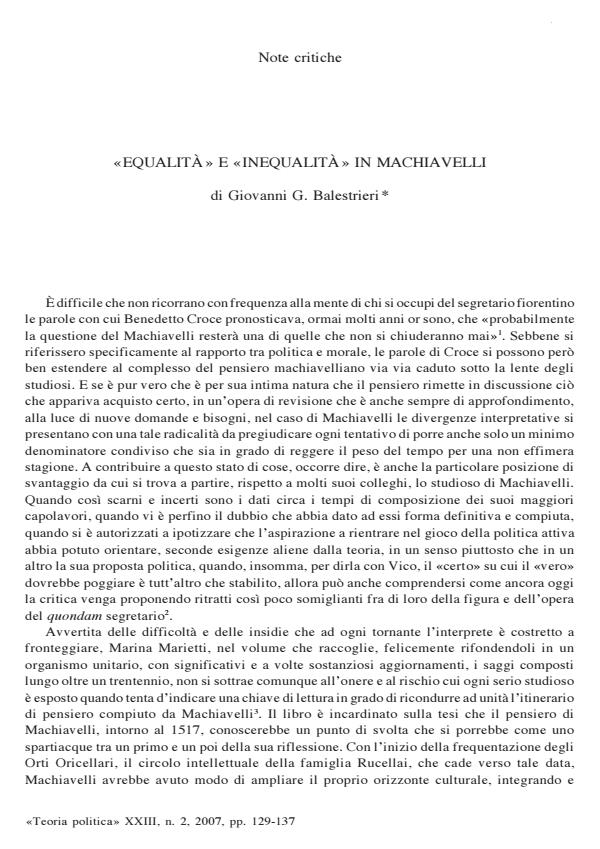"Equalità" e "inequalità" in Machiavelli
Journal title TEORIA POLITICA
Author/s Giovanni G. Balestrieri
Publishing Year 2007 Issue 2007/2 Language Italian
Pages 9 P. 129-137 File size 90 KB
DOI
DOI is like a bar code for intellectual property: to have more infomation
click here
Below, you can see the article first page
If you want to buy this article in PDF format, you can do it, following the instructions to buy download credits

FrancoAngeli is member of Publishers International Linking Association, Inc (PILA), a not-for-profit association which run the CrossRef service enabling links to and from online scholarly content.
Around 1517, with the frequentation of the Orti Oricellari, the political meditation of Machiavelli would have had a decisive turning-point, for which the Florentine secretary would be convinced some necessity to proportion the political institutions to the social structure. Set himself for this way, he would be therefore induced to point out, for society « equali », the republic and, for society « inequali », the monarchy, the only form of government that, with the regal authority, would have been able to contain the « inequality » that distinguishes still a feudal system with its nobility. It is this the interpretative key with which M. Marietti (Machiavelli, l’eccezione fiorentina, Cadmo, Fiesole 2006) thinks about reducing to an unity the thought of Machiavelli. But in to lower it in the Machiavellian texts, Marietti doesn’t succeed entirely persuasive. Particularly it doesn’t convince her reading of the principato civile and the thesis, that, in last, Machiavelli would have identified the principate with the tyranny tout court.
Giovanni G. Balestrieri, "Equalità" e "inequalità" in Machiavelli in "TEORIA POLITICA" 2/2007, pp 129-137, DOI: